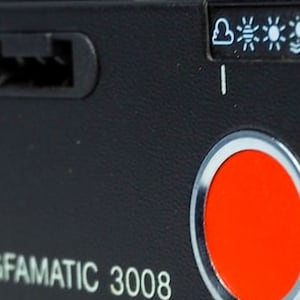ten a penny: Idiom Meaning and Origin
What does ‘ten a penny’ mean?
The idiom ten a penny means that something is very common or easy to find, suggesting that it is not valuable or unique.

Idiom Explorer
An idiom used to emphasize the extreme or exceptional quality of someone or something.
The idiom "ten to one" means there is a high probability or likelihood of something happening. It suggests that the chances of a particular outcome are very likely, with the ratio being 10:1 in favor of that outcome.
The idiom "ten-cent word" refers to a word that is unnecessarily complex or fancy, typically used to impress others. It implies that such words are not only overly complicated but also of little value, like a cheap product.
The idiom "teeny weeny" means something extremely small or tiny.
The idiom "teensy weensy" is used to describe something that is very small in size or quantity.
The idiom "take up a collection" means to gather contributions of money or other items from a group of people for a specific purpose or cause.
The idiom "take to the bank" means to consider something as certain or reliable, usually in the context of information or promises that can be trusted and relied upon without any doubt or hesitation.
An Abundance in Every Corner
The idiom "ten a penny" is a commonly used phrase that has become ingrained in the English language. It is used to describe something that is very common, abundant, or easily available. The phrase implies that the item being referred to can be found everywhere and is not particularly valuable or unique. One related idiom that conveys a similar meaning is "dime a dozen." This expression emphasizes the abundance and lack of value of something, much like "ten a penny." Another related idiom is "pennies on the dollar," which also describes something being abundant and inexpensive. The phrase "ten-cent word" is another idiomatic expression that aligns with the concept of "ten a penny," as it refers to a word that is unnecessarily complex or intellectual. Lastly, the idiom "ten to one" can be used to describe a situation that is highly likely to occur. These related idioms further emphasize the idea of something being common, abundant, or easily obtained.
The origin of this idiom can be traced back to the early 19th century in England. During this time, penny candies were a popular and affordable treat, readily available in candy shops and marketplaces. The phrase "ten a penny" was used to emphasize the high quantity and low value of these candies. It became a metaphor to describe any object or thing that shared the same characteristics of being plentiful and inexpensive. The notion of something being "ten a penny" is comparable to the idea of something being "dime a dozen" in American English, which means that it is common and of little value. Additionally, "pennies on the dollar" and "ten-cent word" both refer to something being inexpensive or lacking value. These idioms provide further reinforcement of the concept conveyed by "ten a penny."
Although "ten a penny" is commonly used in British English, its prevalence in American English is less prominent. Americans often use alternative expressions, such as "a dime a dozen" or "two a penny," to convey the same idea of something being abundant or inexpensive. These alternative idioms serve to emphasize the ubiquity and lack of value of the item or concept being described. While the specific expressions may differ, the underlying concept of something being common and easily obtainable remains consistent across these idiomatic phrases.
It is important to note that the idiom "ten a penny" is not limited to describing physical objects. It can also be used metaphorically to describe ideas, concepts, or situations. For example, one might say "Opinions on the internet are ten a penny" to highlight the abundance and lack of value of various online viewpoints. Similarly, the related idioms "dime a dozen," "pennies on the dollar," "ten-cent word," and "ten to one" can also be applied metaphorically to convey a similar idea. These idiomatic expressions allow for the concise communication of a concept or situation that is common, easily obtainable, and lacks significant value or uniqueness.
Overall, the idiom "ten a penny" originated in 19th century England and is used to describe something that is common and inexpensive. It has become a widely recognized phrase in the English language, although its usage may vary between countries. Whether it refers to physical objects or abstract concepts, this idiom effectively conveys the notion of something being abundant and easily accessible. Its enduring popularity serves as a reminder of the importance of idiomatic expressions in our everyday communication. In combination with related idioms such as "dime a dozen," "pennies on the dollar," "ten-cent word," and "ten to one," these phrases provide a rich linguistic tapestry that allows for clear and concise communication of ideas.
Example usage
Examples of how the idiom "ten a penny" can be used in a sentence:
- In this neighborhood, coffee shops are ten a penny, you can find one on almost every corner.
- With so many fashion bloggers nowadays, it seems like style advice is ten a penny.
- Just like with any tourist destination, souvenir shops in this city are ten a penny.
More "Common" idioms



